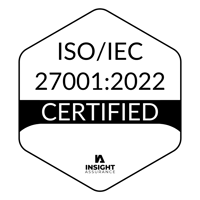In late February 2015 the Independent Sector released its updates to the Principles for Good Governance and Ethical Practices, a set of 33 principles that guide self-governance for nonprofit organizations and foundations. The 2015 edition is the first time these principles have been significantly updated since they were initially released in 2007.
The purpose of the Good Governance and Ethical Practices is to establish a foundation for transparency, accountability, integrity and good governance among nonprofits, inclusive of ethical and trustworthy behavior. The 2015 updates reinforce and expand on these areas, supporting fiduciary accountability and responsible fundraising, with the ultimate goal of increased public trust.
The 2015 updates primarily focus on seven areas:
• Code of ethics and whistleblower policies
• Risk tolerance and mitigation in response to technology advances
• Nonprofits taking up new business or earned income opportunities
• The tension between increasing transparency and protecting privacy
• Executive compensation
• Overhead costs
• Fundraising
These updates provide implications in the areas of technology and data security; new charitable business and social change models; balancing organizational transparency and individual privacy; and the continuous debate around overhead costs.
But while the principles offer a framework for ethical nonprofit behavior, they don’t come without criticism. In arecent editorial in The Chronicle of Philanthropy, Pablo Eisenberg, a senior fellow at the Center for Public and Nonprofit Leadership at Georgetown University’s McCourt School of Public Policy, concedes that guidelines for self-regulation can help nonprofits behave in more ethical and effective ways. Nevertheless, Eisenberg notes that the Independent Sector missed a significant opportunity to push for more stringent laws around nonprofit regulation and tougher enforcement of those laws.
However Michael Peregrine, a partner at McDermott Will & Emery in Chicago, counters many of Eisenberg’s statements and notes: “Self -regulation is a complement, not a threat, to effective enforcement of the nonprofit laws…it frees charity regulators to pursue the most serious allegations of malfeasance in the sector.”
To learn more about the Principles for Good Governance and Ethical Practices, visit Independent Sector. To read the above editorials in full, visit The Chronicle of Philanthropy.
Interested in learning how to save 12.5% on your healthcare benefits and offer better benefits? Contact us.

.png?width=1501&name=Nonstop_Logo-22-Horizontal%20(2).png)


